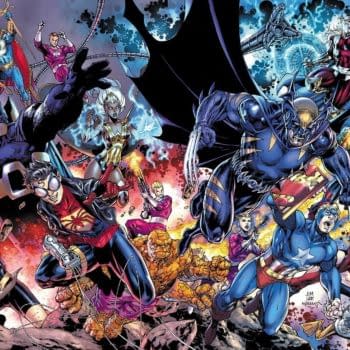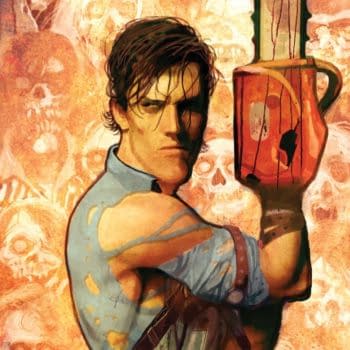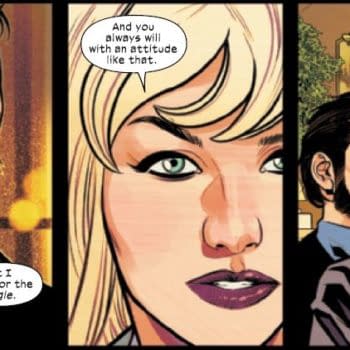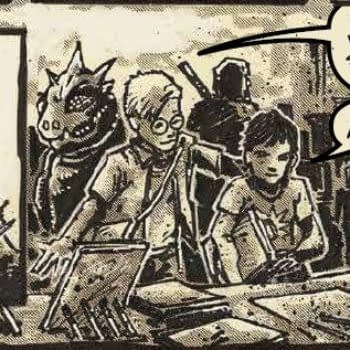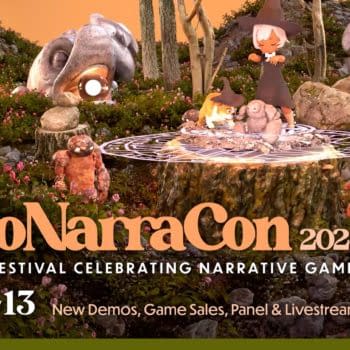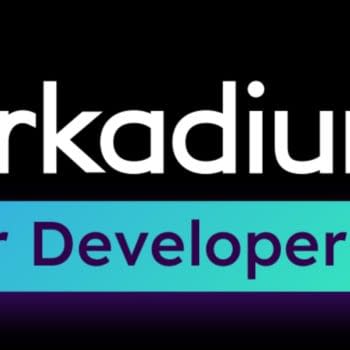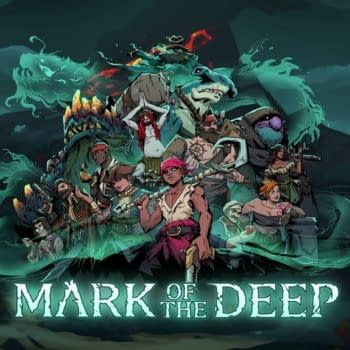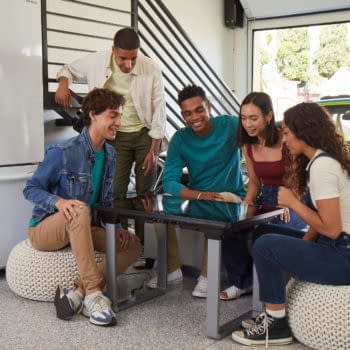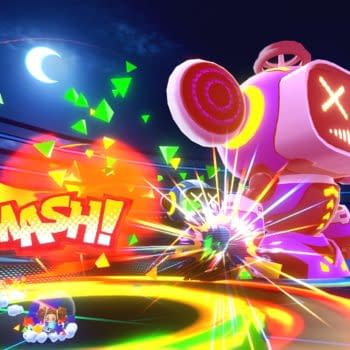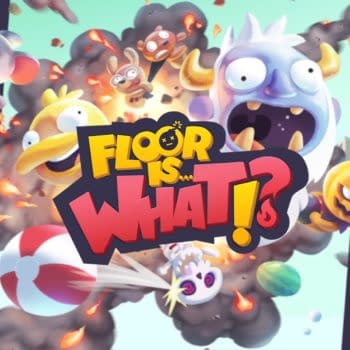Posted in: Games | Tagged: Comics, entertainment
PAX South 17: Anxiety Gaming, Where The Mind is What Matters
Chris Ahrnsbrak writes from PAX South,
"Who here," the speaker said into the microphone, "has had to get through a difficult time in their life?" Of the hundred-plus in the Bobcat Room of PAX South 2017 on a Saturday night, over one-third of the room raised their hands as Anxiety Gaming presented their panel on mental health and gaming, "How One Anxious Gamer Changed the World".
During his senior year of college, founder Jason Docton was preparing for a career in the medical field, with dreams of how he could help the lives of others. But a severe, nearly crippling anxiety disorder that manifested itself as severe agoraphobia left him a bit adrift. Unwilling and unable to face the outside world, he turned to video games to keep at least a nominal connection to the world beyond his doors, most notably to Blizzard's World of Warcraft. "I was ready," Docton said, "to commit suicide." But he began what he called a self-made quest. "I could take my [own] life. I was ready. But only if I save someone else's." As his talks with his guild grew, he began to reach out more and more to others and the small community of support for his mental health steadily grew and grew as he discovered that he was not alone in his pain.
His quest shifted, and Anxiety Gaming was born.
Docton's original diagnosis and treatment followed classic methods, finding a professional for help. But he kept running across issues that he discovered, as he spoke with others, turned out to be all too common amongst those suffering from various types of mental health crises. "Gaming," he noted, "was a way for us to escape. We escaped divorce, bullying… anything [in the outside world]." But beyond the gaming world, it was a "constant battle to find someone [professional] to connect with on a personality level." Finding someone licensed with whom he or others could get along proved just as difficult.
As time went on, Docton discovered another problem—the paywall regarding good professional care. "Therapists can cost upwards of $120, $220, or more every week. That's rent to some people."
Anxiety Gaming was born of the needs of the larger gaming community. It's a place where those with mental health issues can turn, confidentially, to take those first steps towards what it is they need. Multiple services are available at no charge, from assistance in finding the right therapist in a nearby location, to helping bring down the costs associated with the much-needed theraputic assistance. Mara Felix, Clinical Supervisor for AG, spoke of the personalized process to find the right therapist. "There is an application on our website to complete first. After that, we process interviews," she continued, explaining that it's done in a confidential, double-blind way to protect both patient and professional. "AG will work with both parties on pricing and we're working more on specializing treatment [paths] bit by bit."
Another method that's proven to work well for AG is live chat through live chat. "Our community outreach is huge," explained David Rodriguez, one of AG's executive board members. "We're always matching gamers to games and communities therein, both through our website forums and through our Discord voice chat."
Docton added, "By building a community [online] that steps away from the trolling, from the triggering, it helps" each and every one of AG's many supporters and members. He continued on by explaining that there's no venting allowed on the open servers in order to help prevent other users from breaking down or falling prey to their own inner demons. "Even if they're not actively saying they're going through the process [of dealing with their own mental health issues], they're going through it."
Felix stressed that the greater AG community was always looking for more volunteer help for their 501(c)3 charitable organization, a point emphasized by Community Relations manager Marcus Hess. "I started out as an intern, asking how I could help, and as time went on and we started working on more and more events, I grew into coordinating those events."
"The volunteer experience here is not the same as at other places," Docton continued. "It's a beautiful thing… a cycle of people really trying to help each other. By helping others with their issues, they work on their own issues; it's what all the volunteers end up doing."
"We're looking at a different approach to mental health and health care," he finished in the presentation. "Our goal is to find that influencer who can say, 'You should talk about your mental health.'"
With that, the floor opened to a Q&A following that panel discussion.
The first audience question was asked wondering in what games AG was currently active. "We're active in all Blizzard games, on Steam and all consoles," Hess stated. "League of Legends, too. But if there's a game you're interested in, don't hesitate to ask or volunteer."
The next question dealt with the support of family or friends, sked a young lady who introduced herself as Priscilla. "There's an anonymous chat room on Discord with a professional online to help with that," it was explained, "to help find that support for the immediate caregivers [such as a spouse or fiancee] when it feels like you're taking on that full burden of the stress."
But for those who many not know the best way to help, as another questioner asked, Docton offered some of the best advice of the evening's panel. "These are all very personal experiences." The gut, human reaction is to apologize, to say you're sorry. "Don't say sorry. The first thing is to say, 'How can I help?' That's how we learn the best way to support them," before directing them towards someone who can help them, either on a personal level through gaming or through chat or to the professional help requested or needed by the individual.
One question led into the pitfalls of labeling the underlying mental health issues as something as simple as an addiction to the video games themselves. "There is not such thing as video game addiction," Docton said emphatically, explaining that the seeming addiction was the symptom of a larger issue. "We shouldn't be asking why the [supposed] addiction, but why the underlying pain?" Ultimately, he noted, is what AG see when they get someone help for their pain is that when the pain is helped, people game less.
The organization has much broader plans for the long-term future. Questioner Chris ask what the long term goals of the organization were. The partnerships AG has already put in place—partnerships with CLG/Counter Logic Gaming, with service provider Antlion, and with Grammy Award-winning band Imagine Dragons—have helped raise their profile and awareness of mental health issues amongst gamers and non-gamers alike, but Docton sees this as only the beginning. "Ultimately the goal is to open up a facility where people can go and never have to think about the cost. A place," he said as he noted how difficult it is to fight back in a system that doesn't or can't always help people with what they need, "where you can focus on being you."
For more information on Anxiety Gaming or for ways to contact them for help anonymously, please see their website at anxietygaming.com , or contact them on their Discord server at Discord.gg/anxietygaming.









